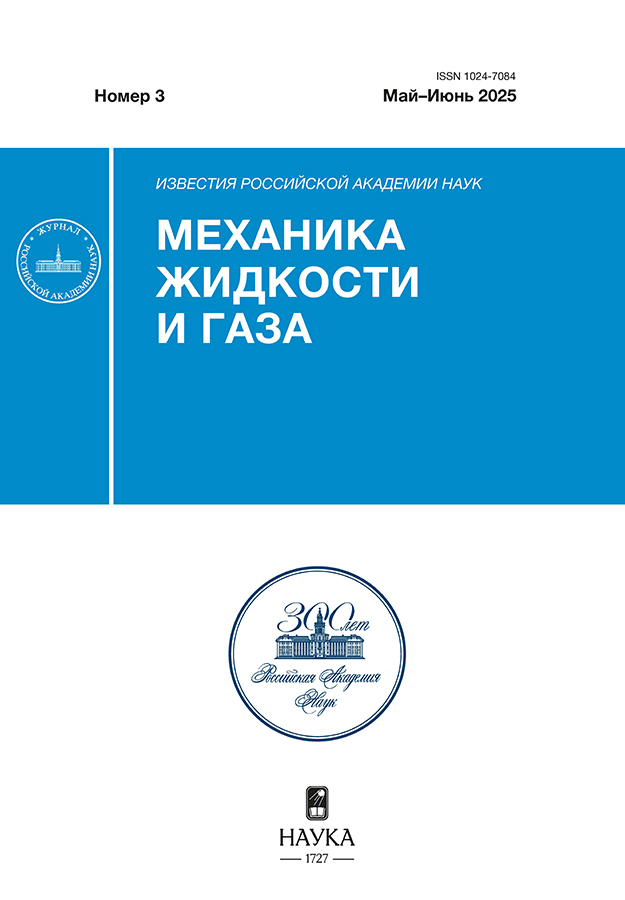Izvestiâ Akademii nauk. Rossijskaâ akademiâ nauk. Mehanika židkosti i gaza
Fluid Dynamics is the English version of the leading Russian journal Izvestia RAN, Mekhanika Zhidkosti i Gaza. It publishes original articles in the field of classical fluid and plasma dynamics, biomechanics of continuous media, flow in electro-magnetic fields, dynamics of multiphase and chemically reactive flow, including flow in porous media.
The journal publishes theoretical and experimental investigations. Numerical research should focus on new mechanical results with a short description of the numerical method itself.
The manuscripts are peer reviewed by two experts. In accordance with the "Statute of Scientific Journals of the Russian Academy of Sciences", the Editorial Board has the exclusive right to accept or reject manuscripts. According to the rules of our journal, authors will not be informed of the reasons for rejection. Papers are published free of charge to the authors and no fee is paid to them.
Media registration certificate: ПИ № ФС 77 – 82144 от 02.11.2021
Information about the Fluid Dynamics see also at the websites
Current Issue
No 3 (2025)
Articles
Numerical Analysis of Rarefied Gas Flow through a Periodic System of Channels
Abstract
 3-14
3-14


Self-Oscillations in an Axisymmetric Generator of Pulsed Jets and High-Frequency Regime Associated with Cavity Boundary Instability
Abstract
 15-29
15-29


On Self-Similarity of Laminar Jets
Abstract
 30-36
30-36


Temperature Factor Effect on the Disturbance Propagation in the Flow past a Blunt Plate in the Interaction Regime
Abstract
 37-46
37-46


Extended High-Current Arc Discharges in an External Magnetic Field in Gas Media
Abstract
 47-59
47-59


Hydrodynamic Instability of Spatially Periodic Flows of Homogeneous and Stratified Fluid with Regard for Friction. Formation of Steady-State Vortex Disturbances
Abstract
 60-72
60-72


Turbulent Boundary Layer on a Plate in Compressible Gas Flow
Abstract
 73-79
73-79


Vertical Momentum Transfer by Internal Waves with Regard for the Horizontal Component of Angular Velocity of the Earth’s Rotation
Abstract
 80-93
80-93


Simulation of One-Sided Convection in a Porous Medium Using a Nonlinear Equation of State
Abstract
 94-106
94-106


The Effect of the Delta Wing Vortex System on the Flow around Lifting Surfaces
Abstract
 107-119
107-119


Comparison of Newton's Problem Solutions for Axisymmetric and Non-Axisymmetric Bodies
Abstract
 120-134
120-134


Numerical Study of Flow Structure in an Axisymmetric Channel with Injection of a Radial Jet along the Coanda Surface
Abstract
 135-146
135-146












